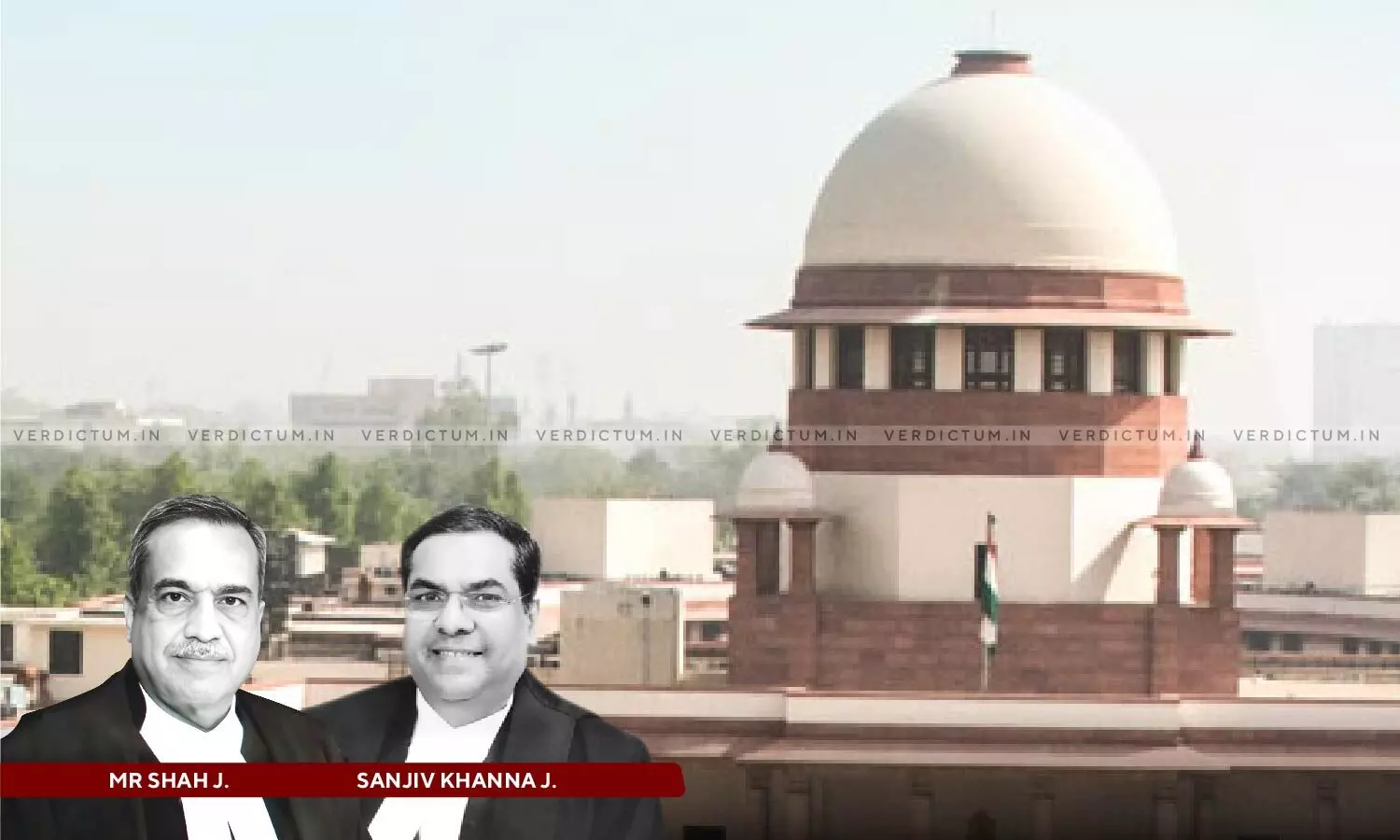
SC Sets Aside Order Directing Police Investigation Into Rape Allegation Against BJP Leader, Remands Matter Back To Magistrate
 |
|A Supreme Court Bench of Justice MR Shah and Justice Sanjiv Khanna has set aside an order of a magisterial court in West Bengal for registration of an FIR against BJP's National General Secretary and two others for offences including rape and criminal intimidation on a complaint by a woman activist.
Senior Advocate Mahesh Jethmalani, Senior Advocate Maninder Singh and Senior Advocate PS Patwalia appeared for the appellants. Senior Advocate R Basant appeared for the State, and Senior Advocate Bikash Ranjan Bhattacharya appeared for the complainant.
In this case, the complainant filed a complaint under Section 156(3) of the CrPC, alleging that she was raped by all three appellants at the residence of the Political Leader. The CJM dismissed the said application, but the High Court set aside the order passed by the CJM and remanded the matter for reconsideration.
Aggrieved, the appellants preferred appeals before the Supreme Court. In the meanwhile, the CJM re-heard the plea of the woman and ordered the registration of an FIR in the matter.
The main issue posed before the Court was whether the CJM was justified in verifying the truth and veracity of the allegations at the stage of deciding the application under Section 156(3) Cr.P.C. and whether at that stage the Magistrate is required to apply judicial mind or not.
The Apex Court stressed on Article 21 of the Constitution and the procedure established by law, to observe that "the procedure established by law should be construed in the manner that the text of the statute ensures right to seek investigation to redress injustice and uncover crime by recourse to expeditious, fair and impartial procedure. Concomitantly, the law in application should protect blameless against those informants who levels false allegations and abuse the law causing distress, humiliation and damage to reputation".
In that context, the Court analysed the position of law provided in Chapter XII of the CrPC, which deals with information to the Police and their power to investigate. Subsequently, the Court observed that "the Police officer is not liable to launch investigation in every FIR which is mandatorily registered on receiving information relating to commission of a cognizable offence. When the Police officer forecloses investigation in terms of clauses (a) and (b) of the proviso to Section 157(1), he must submit a report to the Magistrate. Here, the Magistrate can direct the Police to investigate, or if he thinks fit, hold an inquiry. Where a Police officer, in a given case, proceeds to investigate the matter, then he files the final report under Section 173 of the Code. The noticeable feature of the scheme is that the Magistrate is kept in the picture at all stages of investigation, but he is not authorised to interfere with the actual investigation or to direct the Police how the investigation should be conducted".
The Court also referred to the judgment given in Lalita Kumari v. Government of Uttar Pradesh and others and Abhinandan Jha v. Dinesh Mishra. Subsequently, the Court was of the considered view that "The power of the Magistrate is conferred once a report in terms of Section 157 or a report under Section 173(3) is submitted by the Police before the Magistrate. Thus, the Magistrate, who has little or no scope to interfere with the investigation, is not absolutely powerless in view of the powers conferred in terms of Sections 159 and 173, and infra, Section 202 of the Code".
The Court also considered the limits within which the Magistrate must act, and observed that "When the Magistrate is satisfied that the allegations made disclose commission of a cognizable offence, he must stay his hands, direct registration of an FIR and leave it to the investigative agency to unearth the facts and ascertain the truth of the allegations".
The Court observed that "In a well-designed system, judicial findings of formal legal truth should coincide with the substantive truth. This can happen when the facts as asserted by the contestants are skilfully explored in accordance with the procedure prescribed by law. Abuse of law must be checked, if possible, at the very threshold, albeit when it is possible and also as per the procedure prescribed by law"., and subsequently affirmed the judgment and order passed by the High Court.
The matter was remanded back to the Magistrate to examine and apply his judicial mind and then exercise discretion on whether or not to issue directions under Section 156(3) or whether he can take cognizance and follow the procedure under Section 202.
Cause Title: Kailash Vijayvargiya v. Rajlakshmi Chaudhuri and Others
Click here to read/download the Judgment